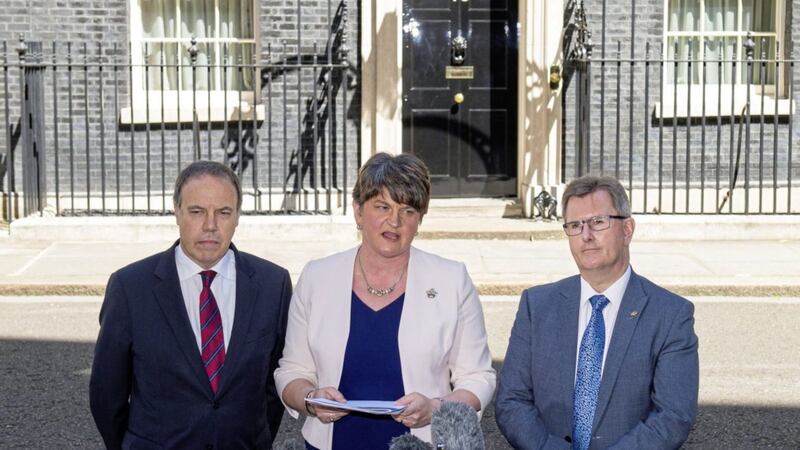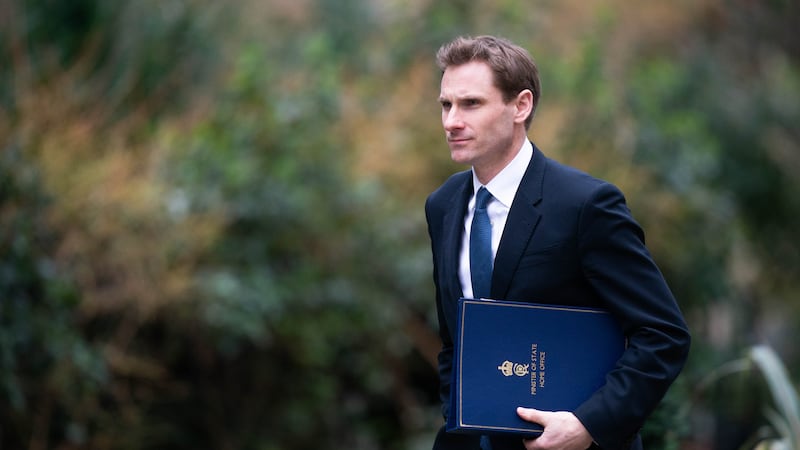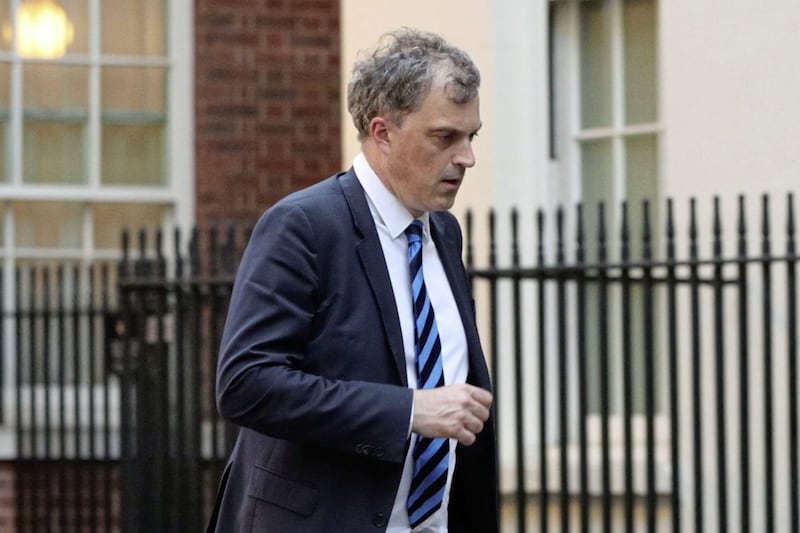Arlene Foster looked like the proverbial cat who'd got the cream as she left 10 Downing Street yesterday morning following the signing of the much-anticipated 'confidence and supply' deal with Theresa May.
After six months which must rank as the most perilous ever faced by a DUP leader, Mrs Foster emerged triumphant and with an agreement that ostensibly keeps her pledge to get the best deal for Northern Ireland.
A long three weeks ago, the former first minister was content to let her lieutenants take her place in two televised election debates for fear that she may further exacerbate nationalists and send them to the polls in even greater numbers than on March 2. But yesterday, Mrs Foster was milking the attention, the permanent smirk suggesting she still can't believe how circumstances suddenly conspired to turn her into a kingmaker holding all the aces.
The figures in the deal which was finally brokered didn't quite match those being bandied about last week but nonetheless it represents a substantial financial package and one that's being eyed enviously in Edinburgh and Cardiff.
There's no doubt the money for infrastructure, health and education will be welcomed across the board, though begrudgingly in some quarters. Those expert in roads, hospitals and education certainly seem grateful for a windfall that if all goes to plan will rain down on the north over the next two years.
The DUP has also been clever enough to ensure concessions like retaining the pensions triple lock and halting plans to means test the universal winter fuel payment are not just about feathering the Northern Ireland nest alone and instead have popular UK-wide appeal.
Mrs Foster was always clear that this was part of her desired outcome because she didn't want her shopping list to reflect solely regional interests, as potentially this could have led to resentment of the DUP in Britain.
Any expectations about an immediate abolition of Air Passenger Duty and a reduction in the regional corporation tax rate were ambitious to say the least. The respective pledges in the deal neither rule out either in the future but in typical style kicks them far enough down the road as to not create any fall-out in the short-term.
Mrs Foster's glee not only derives from striking a good deal with Theresa May but the fact she has outflanked Sinn Féin in one fell swoop. The nationalist surge in March's Stormont election emboldened Sinn Féin but despite gaining three seats, this month's general election tempered the party's mood, while the subsequent shift of focus to Westminster left it looking impotent.
Keen not to appear churlish, republicans will be cautious in their immediate response to the Conservative-DUP deal but secretly they will be hoping to see it crash and burn. However, if it proves sustainable Sinn Féin can't be seen to be rejecting much-needed funds for public services, even if the price they come with is continued Tory rule.
Drawing down the promised funds isn't dependent on an executive being in place but the money would surely be spent more effectively and with greater accountability were there Stormont ministers there to oversee it. Whether it makes the likelihood of a deal greater is not immediately obvious, as the alliance hatched in London is viewed with varying degrees of suspicion by a number of the north's parties, not just Sinn Féin. Agreement this week always appeared ambitious, so it now looks likely that the autumn will become the new focus for a deal, with measures to buy time helping us see out the summer.
Perhaps by September we can make a better assessment of Theresa May's long-term prospects or maybe we'll find the DUP-Tory deal proved to be just a flash in the pan?








